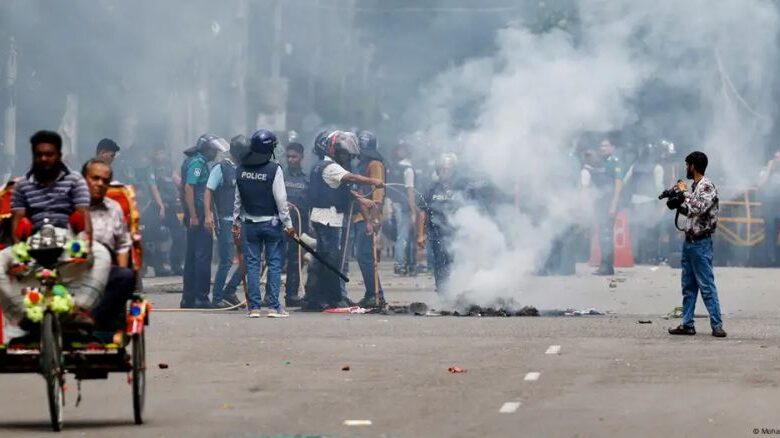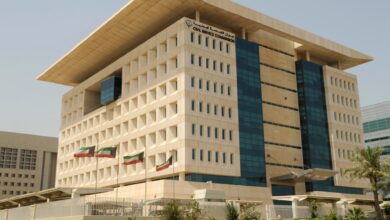
At least 90 people died Sunday after clashes between protesters, security forces, and supporters of Bangladeshi Prime Minister Sheikh Hasina’s government, in one of the deadliest days in Bangladesh since anti-government demonstrations were sparked last month.
The Interior Ministry declared an indefinite nationwide curfew from 6 p.m. local time.
A student-led protest movement began last month as a call to eliminate a controversial quota system for public sector job recruitment, which the Bangladesh Supreme Court has since scaled back. However, the protests have since transformed into a broader anti-government movement.
Protesters returned to the streets this week in huge numbers, in what has been characterized as “non-cooperation” movement aimed at paralyzing the government and demanding the prime minister’s resignation.
What happened on Sunday?
Large groups of protesters packed into Dhaka’s central Shahbagh Square, with street battles erupting at multiple locations in the capital as well as in other cities, police said.
Protest organizers had urged people not to pay taxes and utility bills and not show up for work in a show of “non-cooperation” with the government.
Sunday is a working day in Bangladesh but many shops and banks in Dhaka stayed closed.
At one stage, thousands of protesters attacked a major public hospital in Dhaka’s Shahbagh area, torching several vehicles, the police said.
A police officer, who asked not to be named, told the French AFP news agency that “the whole city has turned into a battleground.”
In the capital’s Uttara neighborhood, police fired teargas to disperse hundreds of protesters who blocked a major highway.
At least 91 people were killed across the country, police and doctors said.
There are “at least 14 policemen” among those killed and 300 other officers wounded, police spokesman Kamrul Ahsan said.
Also Sunday, the government announced a holiday from Monday to Wednesday.
Courts were to be closed indefinitely. Mobile internet service was cut off, and Facebook and messaging apps, including WhatsApp, were inaccessible.
Hasina has accused the protesters of carrying out “sabotage.”
What did UN rights chief say?
The United Nations’ human rights chief Volker Turk said Sunday that the “shocking violence” in the South Asian country must stop.
He also urged the government to stop targeting peaceful protesters.
“I appeal urgently to the political leadership and to the security forces to abide by their obligations to protect the right to life, and the freedom of peaceful assembly and expression,” Turk said.
“The government must cease targeting those participating peacefully in the protest movement, immediately release those arbitrarily detained, restore full Internet access, and create conditions for meaningful dialogue,” the UN official added.
“The continuing effort to suppress popular discontent, including through the excessive use of force, and the deliberate spread of misinformation and incitement to violence, must immediately cease.”
Why are protesters angry?
The student protests erupted nearly two months ago over a longstanding quota system for public sector jobs that favors descendants of ex-military personnel who fought for the country’s independence from Pakistan in 1971, as well as other groups.
The government had shelved the quota system but a court challenge paved the way for it to be reintroduced until a ruling from the Supreme Court ordered the ex-military quota to be reduced from 30% to 5%.
The Court ruled that 93% of jobs should be allocated on merit, with the remaining 2% set aside for minority groups.
The protests died down for several days, but have since turned into an anti-government movement, and students are now demanding justice for the victims of police brutality during the crackdown.
Over the past month, more than 200 people have been killed, thousands injured and about 10,000 arrested in connection with the protests.
Government critics, along with human rights groups, accuse Hasina’s government of using excessive force to stamp out the movement, which it denies.
The unrest is the biggest test for Hasina since she won a fourth straight term in January elections boycotted by the main opposition Bangladesh Nationalist Party.
The 76-year-old Hasina has ruled Bangladesh with an iron fist since 2009. She is accused by rights groups of misusing state institutions to entrench her hold on power and stamp out dissent.
Source: DW













